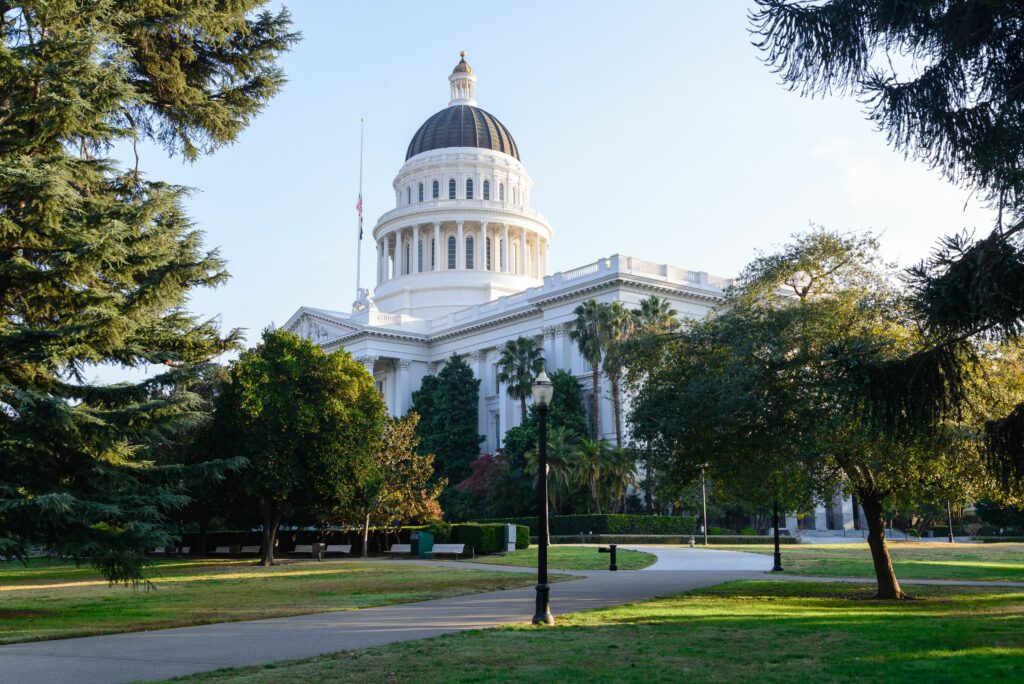
Charting California’s Course on the Environment from Brown to Newsom and Beyond
Sponsored by the Emmett Institute on Climate Change and the Environment at UCLA School of Law
-
UCLA School of Law
Over the period spanning Governor Brown’s four terms in office, California cemented its identity as a pioneer of forward-thinking environmental law. California’s stance on climate and energy policy has marked the state as a national, and even global, force. At home, however, California continues to face entrenched environmental issues: the use and movement of water, the development of fossil fuel resources, and a housing affordability struggle that raises deep questions about land use policy.
This symposium will explore California’s status and future as an environmental pioneer. Panelists will examine the successes and challenges faced during Governor Brown’s tenure in office, taking a close look at the complexities of the state’s environmental policy commitments and what they have meant for California, the nation, and the international community. With Governor Newsom now at the helm, we will also look at today’s environmental leadership opportunities: both to stay the course and to build upon it.
Confirmed speakers:
- Keynote speaker: Mary Nichols, Chair, California Air Resources Board
- Ken Alex, Director, Project Climate, Berkeley Law
- Ann Carlson, Shirley Shapiro Professor of Environmental Law and Faculty Co-Director, Emmett Institute on Climate Change and the Environment at UCLA School of Law
- E. Joaquin Esquivel, Chair, State Water Resources Control Board
- Yana Garcia, Assistant Secretary for Environmental Justice and Tribal Affairs, CalEPA
- Gladys Limón, Executive Director, California Environmental Justice Alliance
- Liane Randolph, Commissioner, California Public Utilities Commission
- Julia Stein, Supervising Attorney, Frank G. Wells Environmental Law Clinic and Project Director, Emmett Institute on Climate Change and the Environment at UCLA School of Law
Agenda
9:00 – 9:30 a.m.
Breakfast and check-in
9:30 – 10:15 a.m.
Opening Remarks: Mary D. Nichols, Chair, California Air Resources Board
10:15 – 10:30 a.m.
Break
10:30 – 11:45 a.m.
Panel 1: Problems and Opportunities at Scale: Facing California’s Greatest Environmental Challenges
California attempted fixes to some of its most complex problems during Governor Brown’s time in office: the state’s perennial water woes, ongoing questions about environmental equity and justice, and, of course, climate change and energy questions. What progress have we made over the last two gubernatorial terms? Did some of those Goliaths get the better of us? This panel will consider the unique roads traveled to address some of the state’s highest profile issues, and successes and failures along the way. The panel will discuss lessons learned from efforts to tackle big, intractable statewide issue with numerous entrenched stakeholder interests, and will look forward to the future of these projects and policies during the Newsom administration.
11:45 a.m. – 12:45 p.m.
Lunch
12:45 – 2:00 p.m.
Panel 2: “We’ll launch our own damn satellite”: California As A National and Global Force
Establishing California as a globally-recognized proving ground for innovation means not only making ambitious policy at home, but also working with—and sometimes against—federal and international actors to advance those policy goals. This panel will examine California’s relationships with the federal government and international community over the course of Brown’s tenure and into the present day, with a particular focus on the state’s prominent role as a powerful subnational actor in advocating for climate policies. How much influence has California had, and can it continue to have, on environmental policy outside its borders? Panelists will look ahead to continued opportunities for California’s leadership in this area.
2:00 – 2:10 p.m.
Break
2:10 – 3:25 p.m.
Panel 3: Building on Jerry: Tackling Housing and Transportation
California’s long struggle to provide affordable housing for its residents came to a head during the last few years of Governor Brown’s term, and Governor Newsom has signaled that housing is a key priority for his administration. At the same time, California has committed itself to ever more ambitious greenhouse gas emissions reduction targets, which cannot be met without meaningful changes in the transportation sector. But improving access to affordable, sustainable, equitable transportation remains a significant challenge. As California works to house its residents and combat climate change, questions about the compatibility of these two policy goals are being raised. This panel will explore the makings of the housing crisis and lessons learned from Governor Brown’s tenure and will consider how California can meet its considerable housing and transportation challenges moving forward, while continuing to make progress on climate and other environmental goals.
3:25 – 3:35 p.m.
Afternoon break
3:35 – 4:15 p.m.
Closing remarks
4:15 – 5:00 p.m.
Reception: Law Courtyard
